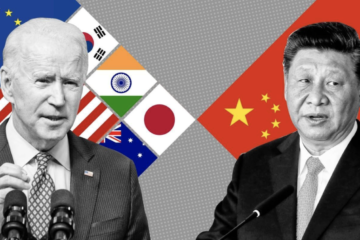The camaraderie between India and its Middle Eastern neighbours is growing at a rapid pace. It is widely known that India PM Modi’s visits to the Gulf states of Qatar and United Arab Emirates (UAE) have paid rich dividends with the Crown Prince of Abu Dhabi, Mohammed bin Zayed Al Nahyan, who graced India’s Republic Day celebrations as the Chief Guest last year, giving a much needed boost to India’s ties with the UAE. His visits to the UAE, Oman and Palestine in the past week are also noteworthy considering India’s increasing closeness with Israel. The PM visited the UAE for the World Government Summit where he was accorded ‘guest of honour’ status. These visits are significant because they may be seen as “follow up visits” by the PM after his much-publicised visit to Israel last year and the reciprocal visit by Israeli PM Netanyahu to India last month. India and Israel have shared a warm relationship in the past but without much acknowledgement and it is the first time since the establishment of diplomatic ties with Israel in 1992 that the government of the day has shown tangible interest and willingness to be open about its ties with Israel.
The ‘veil of ignorance’ that existed among Indians regarding the Middle East is finally coming off and India is finally engaging with the region with commensurate ease and comfort. Prime Minister Modi had not visited Palestine during his visit to Israel last year to commemorate 25 years of the establishment of diplomatic relations between India and Israel. His visit to Palestine has come at the right time because India’s growing proximity with Israel may have led to a certain feeling of isolation among the Palestinians.
Therefore, it’s not incorrect to suggest that India has conducted its diplomacy vis-a-vis the Middle East with great amount of sagacity. India’s vote against making Jerusalem the capital of Israel in the UN showed clarity and intent on India’s part and its support for what was morally right. The stupendous success of Benjamin Netanyahu’s visit right after the vote at the United Nations has further strengthened ties between the two countries. India has finally been able to de-hyphenate the Israel-Palestine issue because it is looking at issues pertaining to both countries on a case by case basis.
India and Oman share a long history of cultural and economic exchange and Oman hosts a huge Indian expatriate population. PM Modi’s visit to Oman will lead to a further consolidation of ties and attract trade and investment and further strengthen India’s alliance with the country. India’s relation with Iran has also seen an upward swing in recent months with the opening of the Chabahar port -India’s answer to Gwadar- the Pakistani port being developed by the Chinese. The Chabahar port holds strategic importance for India at a time when Chinese influence is consistently on the rise in Asia with the Chinese making inroads everywhere with the China Pakistan Economic Corridor (CPEC) and the One Belt One Road (OBOR) initiative. The opening of the port in Sistan Baluchistan Province will help in strengthening bilateral relations between Iran and India as India will be able to directly trade with Iran and counter the burgeoning economic and commercial influence of China in the region. India’s growing relationship with countries like Oman and Iran which are in close proximity to each other may enable India to potentially create a web of opportunity for itself where it could use its navigable waters of the Arabian Sea to trade with both the countries.
However, as a note of caution, India needs to play the balancing act in the Middle East with extreme care as it is engaging with a region that remains highly charged. India will be treading on choppy waters in the coming months especially because of the US government’s unpredictable foreign policy decision making. The vacillating nature of the US President and his extreme statements on the Middle East can impact India dearly. India needs to be particularly cautious about Iran in this regard.
Iran is a regional hegemon in the Middle East and India’s engagement with other leading powers in the region at the cost of its relationship with Iran will be detrimental to India’s larger economic and strategic interests. India’s perceived tilt towards Israel has clearly not gone down too well with Iran – with the Iranians raking up the Kashmir issue in the past to avoid being isolated. In the past, India has irked Iran by voting against it at the International Atomic Energy Agency (IAEA) in 2005. India may have previously been a victim of carrot and stick diplomacy, but today it needs to show greater resilience and maturity in dealing with Iran. Iran’s concerns need to be taken into consideration – be it on issues related to the import of oil and gas or the all-important Iran Pakistan India (IPI) pipeline. A one off visit to Iran by PM Modi in May 2016 may have helped in soothing ruffled feathers at that time but continuous and consistent engagement with Iran is the need of the hour. PM Modi must view Iran within India’s core when dealing with the Middle East and not in the periphery. Iran is a close friend and ally of both India and Pakistan and isolating Iran could be perilous for India- allowing Pakistan an opportunity to strategically align with Iran to isolate India.
India therefore has its task cut out before itself – it needs to balance its equations with all its Middle Eastern allies – it cannot be seen as being too closely allied with one power at the expense of another. Indian diplomacy has so far done well in managing the complicated and convoluted region of Middle East. The fact that India is not directly involved in protracted conflicts in the region will always work to its advantage in negotiating with the region. The ball is in India’s court right now and mature action from India’s side will go a long way in managing its ties with allies in the Middle East.


